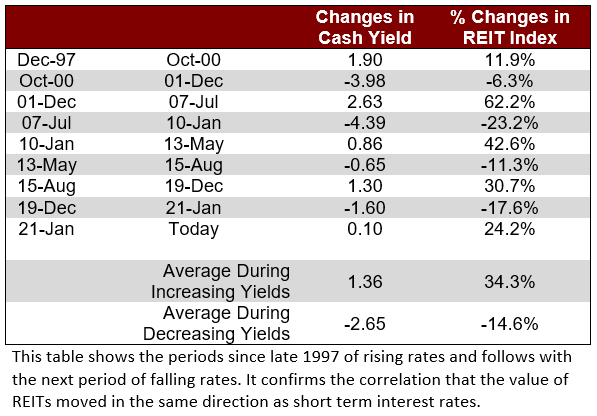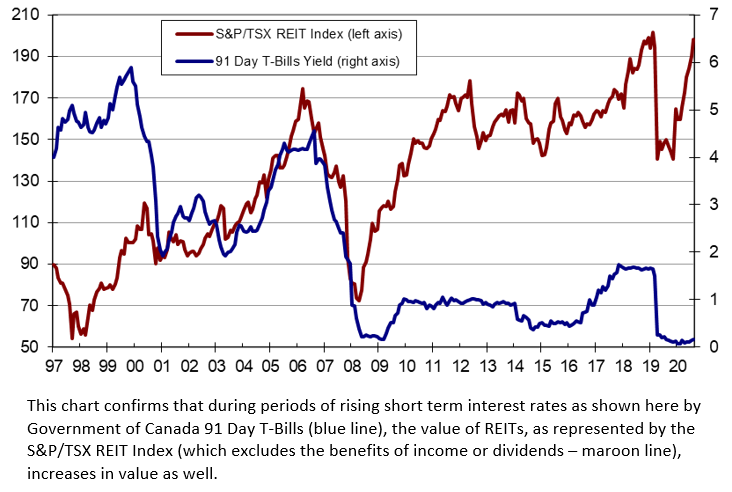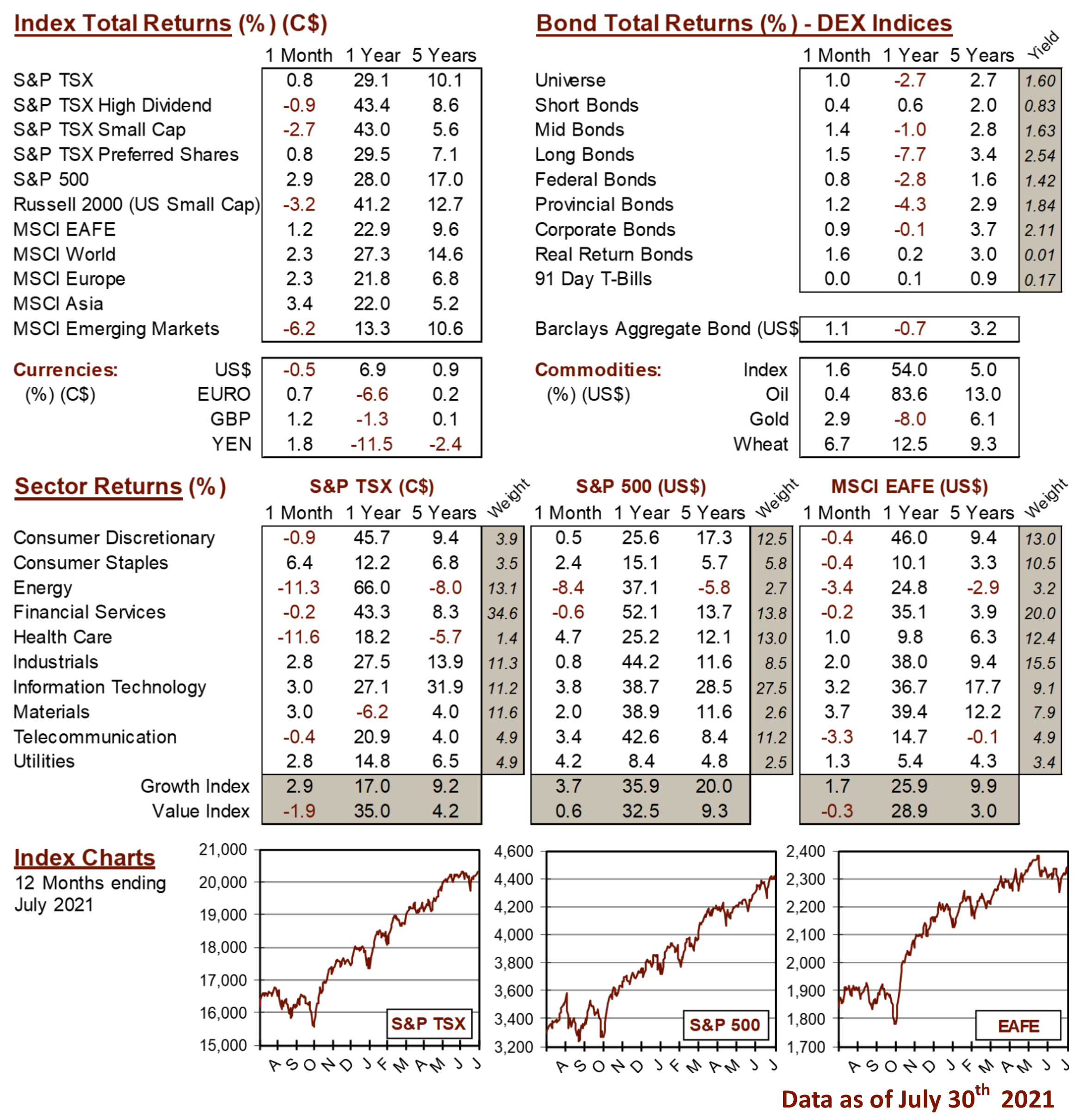Knowledge Centre
REITs vs. Interest Rates
August 2021
The prevailing line of thinking in the investment world is that rising interest rates will spell doom for Real Estate Income Trusts (REITs). In reality this is completely wrong. The truth is that historically during periods of increasing short term interest rates REITs perform extremely well and usually do as well or better than stocks.


In the not too distant past, REITs were considered to be simply a portfolio add-on, but now the case could be made that they are becoming a fundamental ingredient to sound portfolio construction. Non-traditional investments, such as REITs, have become a more common solution as investors look for non-correlated alternatives to stocks. The increased diversification they offer without adding greater risk relative to stocks is certainly very enticing. Additionally, the current low yield environment is forcing investors to overcome ingrained biases and latch onto higher income producing securities.
As the chart to the right and the data to the left show, when short term interest rates rise (in this case Government of Canada 91 Day T-Bills), the value of REITs (represented by the S&P/TSX REIT Index, which excludes the benefits of income or dividends) increases. Of course the opposite is also true as falling interest rates are normally very detrimental to the value of REITs. This historic trend is very obvious. While changes in interest rates may not be the predominate driver of REIT prices, recessionary risk and credit risk most certainly are. It was these two forces that were directly responsible for the most significant drop in REIT prices in 2000, 2008 and 2020. Recessions mean that tenants are less likely to occupy properties and/or could be unable to pay higher rents which weaken the value of real estate. A decrease in credit quality could stop REITs from refinancing debt or force them to pay higher interest rates.
One of the largest expenses for real estate companies is interest payments since approximately 50% of their capital structure is debt. However, usually only 10% of the debt needs to be refinanced in any one year. So short term movements in interest rates are not particularly detrimental to the underlying business. At the same time increased interest rates are an excellent justification for charging higher renewal rates to renters and generating higher revenue. In fact, REITs will likely achieve interest rate savings on debt refinancing since currently most expiring debt costs are above the cost of new financing. Normally, increasing interest rates are linked to a strong economy and an improving economic environment would also lead to an increase in operating income from higher rents and greater occupancy rates for REITs.
Certainly, rising interest rates will have an impact on the value of real estate and likely will lead to an eventual increase in volatility but the steady income that REITs generate, which has averaged 6.2% per year for the last 24 years, on top of the changes in price movements is compelling. The compounding of monthly income which normally accounts for about 70% of s REIT’s total return will, over time, go a long way to smoothing any negative impact of interest rate movements.
MARKET DATA

This report may contain forward looking statements. Forward looking statements are not guarantees of future performance as actual events and results could differ materially from those expressed or implied. The information in this publication does not constitute investment advice by Provisus Wealth Management Limited and is provided for informational purposes only and therefore is not an offer to buy or sell securities. Past performance may not be indicative of future results. While every effort has been made to ensure the correctness of the numbers and data presented, Provisus Wealth Management does not warrant the accuracy of the data in this publication. This publication is for informational purposes only.
Contact Us
18 King St. East Suite 303
Toronto, ON
M5C 1C4
